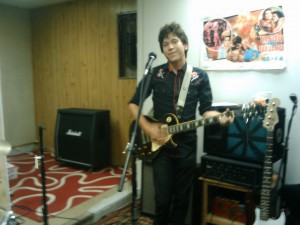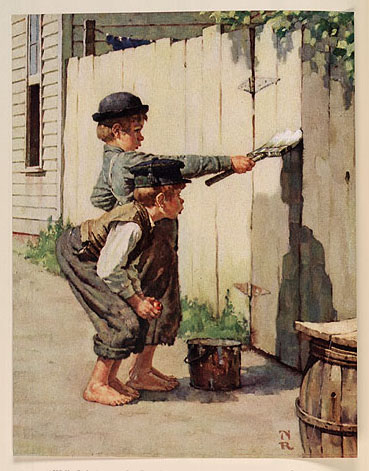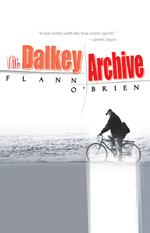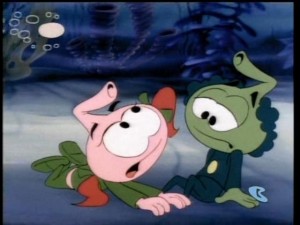Bye America

Taking a random, spur of the moment trip with Ken B. to Paris, Turin, and wherever else things decide to tell us to get. Hopefully will still be chiming in on some of y’alls during that time, from Saturday to 8-10 days or so abroad.
Since I have the night to decide what books I’m going to bring with me on the two 14 hour flights, maybe I could use some help. I have a lot of books to choose from. If you feel like it, take a peek at the books I haven’t read, and make suggestions from the archives of which ones should come along in my bag?
Right now the arm of my sofa is placeholding The Great Fire of London by Jacques Roubaud, The Voyeur by Alain Robbe-Grillet, and Hidden Camera by Zoran Zivkovic. Not married to those selections, so any ‘Dude, read this, man’-ing would be most rad.
As well would any recommendations of must-see places in Paris, Turin, or the local outlying regions thereabout.
Bye!
The Books I Haven’t Read
Seems like for every book I read, I buy three more. In this way life has quickly become a slowly ascending grid of paper, soon which will hopefully be enough to sell my old house and build a new one, out of words.
Often when I am reading I find it hard to concentrate on a book because of the looming of all the other books in the room waiting their turn. Sometimes I will find myself reading faster, allowing missing, so that I will be more quickly open to the next. I try not to do this, but it is hard, especially with these stacks all looming over.
Here are the stacks in my apartment of the books I have bought within the last year or so (some even just last week) and have not read. These I keep stacked on top of my biggest bookcase, on top of all the ones I actually have found the time for:
Literary Dopplegangers: two HTML Giant Contributors
OK, what do you think, maybe I’m breaking the rules?
Round one we got Mike Young crooning in my practice space:

Pretty happy he can play Roy Orbison songs
Here is how I feel today
mixed with this
and these just came in the mail from the Dalkey sale

and that tree outside my window is all pink.
Cover War / Color War

(via Bookslut) Justine Larbalestier speaks at length about the problems she had with the US cover of her book Liar, a YA-adult crossover novel about a black teenage girl, that somehow wound up with a vaguely emo white girl face on its cover. Justine’s restraint and professionalism is remarkable. Quite a bit more of both than I’d have likely demonstrated in the same situation. The essay is a well-thought, engrossing exploration of the cover-choosing process, which is a bizarre mating ritual few people who have never been through it (or put someone through it) know very much about. I myself have just been through it for my story collection. Harper Perennial, btw, were super-responsive to my ideas, kept me in the loop at all times, and I’m counting down the days, minutes, seconds until I can show you what we came up with. They are amazing and just thinking about them–especially Michael Signorelli–makes heart bubbles float all around my head. But back to Justine. Another fascinating part of her story is how the whole whitewash experience stirred a change of her heart with regard to what the cover ought to be. Whereas originally she wanted the US cover to look like the Australian version, which is a sweet piece of design with no faces or other human parts on it, this experience led Justine to start noticing how under-represented people of color are on book covers in general (also the way that “colored” covers are frequently either rejected by stores/libraries or else ghettoed off in the so-called “urban fiction” section). Consequently, she seems to now feel strongly that the cover of the paperback edition of Liar should be representational, and depict a young black woman who resembles her main character, hopefully so young black women like her main character will see something they identify with when browsing the largely and unforgivably white shelves of the YA section. Here’s hoping she gets what she’s after. PS to Bloomsbury, if anyone in editorial/PR is reading this: we don’t usually cover YA, but if you give Justine the cover she’s gunning for, we’d love to hear about it / see a copy.
Dalkey Archive Interviewed
 The LA Times blog, Jacket Copy, interviewed John O’Brien, founder of the amazing Dalkey Archive Press. Here’s an excerpt:
The LA Times blog, Jacket Copy, interviewed John O’Brien, founder of the amazing Dalkey Archive Press. Here’s an excerpt:
JC: How important do you think awareness of form, or a sense of play, is to telling a story in contemporary fiction?
JO’B: I think it should be, and I do emphasize “should,” at the heart of contemporary writing, but this playfulness is not always foregrounded as such. Fiction writing began with this strange consciousness of itself and the possibilities of playfulness, as though it were an inside joke with a great deal of eye-winking going on. The critic Viktor Shklovsky spent a lifetime tracing and exploring such things in relation to fiction, even as related to what would seem to be the un-playful writing of a Tolstoy or Dostoevsky. The fiction that I find unreadable is that which seems unaware of anything that has been written before, and the reader is supposed to go along with what is truly a “suspension of disbelief.” I find this fiction to be boring and condescending to the reader, though apparently many people like it.
Fishing for something to read

I'd love to hook me a Snork
I was back home in South Jersey this past weekend. Knowing full well how difficult it is to find good books down there (there will be no Nelson DeMille for Mrs. Toal’s boy), I made sure to bring my own reading material. Of course, in the end, I was no match for the call of the mall, and before I knew it ended up poking around in Borders. When was the last time you found something good at that place? It’s all vampires, self-help and celeb or Jesus bullshit these days. You have to go in to the nonfiction aisle to even have a chance of finding a tolerable title. Which I did. And I came across Tom McGuane’s The Longest Silence: A Life in Fishing. Has anyone read this? I haven’t been out fishing for at least a decade, yet felt strangely compelled to read it. I like McGuane’s fiction well enough, but to define your life in terms of angled snappers and trout—that is awesome.
I’d like to take this opportunity to apologize to Atlantic County for suggesting that its denizens can’t read. I’m…sorry.
Yann Martel and The Holocaust as genre
 You may have heard that Life of Pi author Yann Martel was given a rather huge contract for his next book. And that the book is being described as an allegory about the Holocaust with animals.
You may have heard that Life of Pi author Yann Martel was given a rather huge contract for his next book. And that the book is being described as an allegory about the Holocaust with animals.
Seattle writer Matt Briggs, in a post on his blog, reacted with this:
It disturbs me that the Holocaust is or has become a genre, just as there is a British tea cozy mystery. Is this an inevitable progression, that a collective trauma becomes shtick? Is the pot boiler Western the equivalent reduction of the genocide of Native Americans?…Three million dollars seems like a lot of money to pay for anything besides a bridge or highway or something.
Intrigued, I asked Briggs to elaborate.
Eric Oberauf On The New Publishing Model: Not Boutique But Better
 Eric Oberauf, captain of the publishing house Two Dollar Radio, has a great article in the new Brooklyn Rail arguing that we should be sober but optimistic about the printed book object and its success as a method of literary distribution. In “The Revenge of Print,” Oberauf explains the relevance of independent presses very well, summarizes the identity crisis that passes for a business model at most big and butterchurning book houses, and argues with a thoughtful and historically aware perspective that adapting a “realistic scale” isn’t downsizing expectations but getting back to mattering. What his argument reminds us is that people pay for books not because they’re addicted to mulch, but to read words and like words and carry words around so they can read them some more, which makes the whole thing more communication than commodity. Maybe you’re going to make more friends than money, it’s true. So if corporate book publishers want to continue tricking any cash into falling toward them, they might want to remember that books are closer to party invitations than to coat hangers.
Eric Oberauf, captain of the publishing house Two Dollar Radio, has a great article in the new Brooklyn Rail arguing that we should be sober but optimistic about the printed book object and its success as a method of literary distribution. In “The Revenge of Print,” Oberauf explains the relevance of independent presses very well, summarizes the identity crisis that passes for a business model at most big and butterchurning book houses, and argues with a thoughtful and historically aware perspective that adapting a “realistic scale” isn’t downsizing expectations but getting back to mattering. What his argument reminds us is that people pay for books not because they’re addicted to mulch, but to read words and like words and carry words around so they can read them some more, which makes the whole thing more communication than commodity. Maybe you’re going to make more friends than money, it’s true. So if corporate book publishers want to continue tricking any cash into falling toward them, they might want to remember that books are closer to party invitations than to coat hangers.
Here’s a pull quote:
The goal for book publishers, most simply put, should not be to undertake a virtual arms race of developing technology with both the Internet and media, or to try to compete on a bloated scale with music and film, or even to translate a work to conform to an undetermined potential future model. The mission for book publishers and print media at large should be to create a product that is irreplaceable and indispensable.
HTML Giant: The Game

Gene and I were chatting about Shotgun Ninja last night and found out that we both had the same secret desire. We both want to meet an indie video game designer and collaborate with them to make games. But how would we ever make this happen?
Well, we have a blog. We have readers. We may as well go ahead and ask.
Are you an indie video game designer? Would you like to collaborate with willing members of the HTML Giant team? Would you like to be the HTML Giant Gamemaster? Get in touch. I’m at
giantblinditems
at
g
mail
dot
com
Imagine: EVER, The Escape
[ ]
[ ]
[ ] [ ]
Or pr’s Baked Tennis All Stars.
Or BE SAM PINK: the game.
A Jello Horse’s Giant Turtle Rampage.
The Log of the S.S. Marie Unguentine Movie Tie-in Game.
An HTML Giant text adventure.
Etcetera.
Spread the word. We’re serious.
